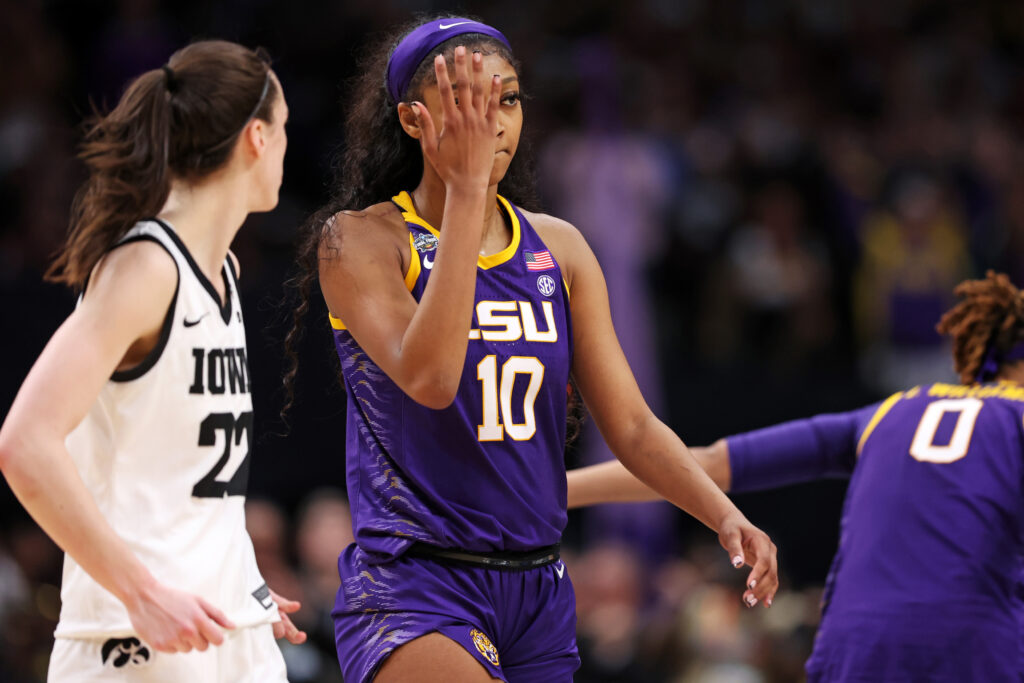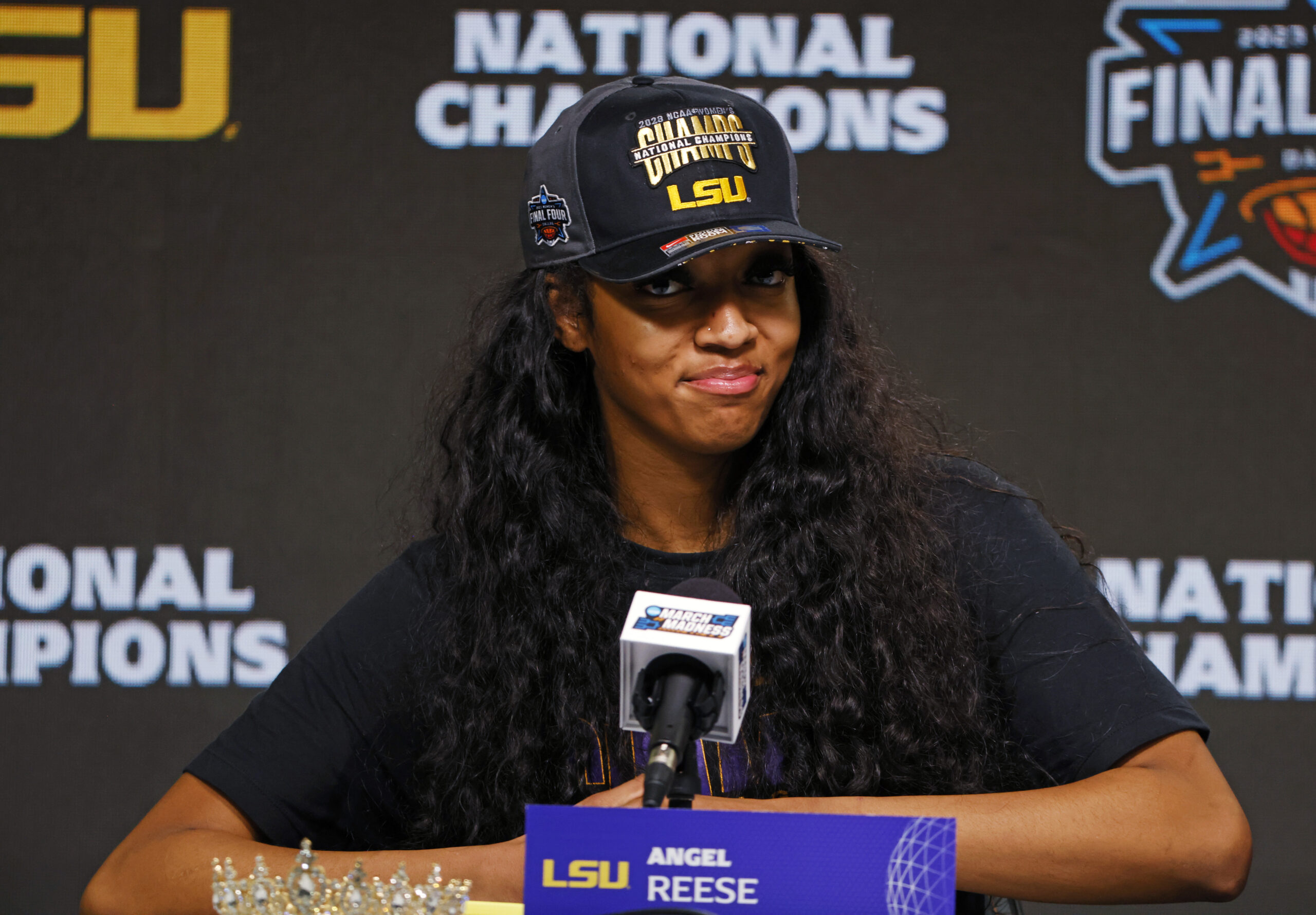Return to sender. That was Angel Reese’s reaction to an invitation to the White House from first lady Jill Biden. The gesture, often extended to national champions was unusual. Reese’s championship Louisiana State University basketball team wasn’t the only group on the guest list. In this case, LSU’s competitor, the Iowa Hawkeye’s, were also extended an invite.
“Last night, I attended the NCAA women’s basketball championship,” Biden said during a press event at the Colorado State Capitol in Denver. “I know we’ll have the champions come to the White House; we always do. So, we hope LSU will come but, you know, I’m going to tell Joe [Biden] I think Iowa should come, too, because they played such a good game.”
In a tweet Reese called the proposed change in tradition “a joke.”
The first lady’s suggestion that LSU share their White House visit with the second place team continues the hotly debated conversation around both universities and their star players. Reese’s situation, down to the double invitation, highlights the double standards many Black women so often face.
Here is What Happened
On Sunday, LSU defeated the University of Iowa in the women’s NCAA tournament matchup.
Following the victory, in what would become a viral, sensationalized moment, Reese celebrated the win by waving her hand in front of her face. She also tapped her ring finger while looking at Iowa’s guard, Caitlin Clark.

For context: Veteran wrestler, John Cena, initially popularized this gesture. It symbolizes the phrase “You Can’t See Me.” Reese, who made the viral hand gesture, is black, and Clark is white. The moment almost immediately sparked a frenzy online, with many social media users criticizing Reese. Her actions, many said, were unsportsmanlike.
This reaction to Reese’s gesture was confusing for many. That’s because Clark, too, used the same hand gesture in the past. Just two games prior, Clark made the exact movement when Iowa beat Louisville to enter the Final Four. The glaring difference, however, is that people applauded Clark for it. She even scored cool points with Cena who tweeted congratulations and praise to her.
Herein lies the problem.
When Reese, a 20-year-old Black woman, did the same thing, sports commentators and online spectators called her behavior “unprofessional,” among other things.
For decades, Black women have pointed out that society judges them more harshly for similar, if not identical, behaviors. From the sports arena to the board room, Black women face unfair criticism that their white counterparts escape. The Reese, Clark situation was a blatant example of the glaring disparity.
A Ridiculous Double Standard
Society often views the Black woman as inherently troublesome and unwholesome. Black women are demonized on a constant basis. To the prejudiced white gaze, Reese, engaging in ordinary sports banter, was the aggressor.
For millennia, Black womanhood has been associated with anger, masculinity, and trouble. On the other spectrum, white womanhood has been associated with fragility and delicateness. The age of social media has shown us time and time again that these stereotypes are certainly not truth.
The rise of “Karens” in viral social media moments exemplified victimhood and how dangerous it can be. Many people would have felt much more comfortable if Reese had politely shook her competitors hand and politely walked off court. The audacity for a Black woman to win and unapologetically celebrate rubbed people the wrong way.
Black Twitter came to Reese’s defense amid the backlash. Not that she needed it. In postgame press statements, the LSU forward confidently called out the double standard. She was unwilling to wilt under the public gaze and criticism. Reese told women and girls who look like her to live unapologetically.
White House Invite
In a comment under a “The Shade Room” post about the White House invitation, Reese wrote in all caps, “WE NOT COMING. period.”
The first lady’s press secretary has since clarified Biden’s comments. She said only LSU will visit the White House to celebrate. Reese has yet to respond to the clarification or confirm if she will now take the first lady up on her invitation.
